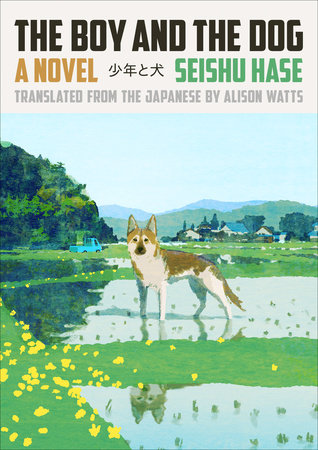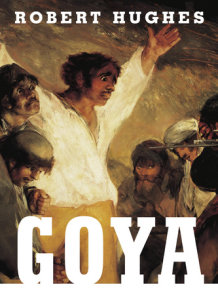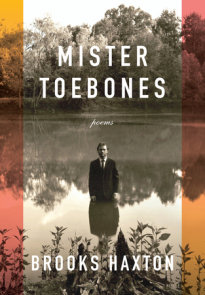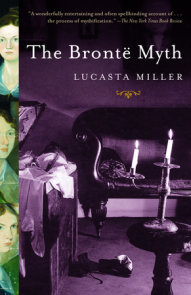READERS GUIDE
Questions and Topics for Discussion
1. In the novel’s first part, “The Man and the Dog,” Kazumasa is offered the chance to earn a lot of money, which he urgently needs to take care of his sister and ailing mother. However, to do so, he has to partake in criminal activity. If you were in Kazumasa’s place, do you believe you would make the same decisions he does? If you were his sister, Mayumi, how would you feel about Kazumasa’s choices?
2. In the second part, “The Thief and the Dog,” we are introduced to two people who come to Japan from other countries: Miguel, a thief, and Hami, a truck driver who agrees to drive Miguel partway to his destination. What kind of relationship do you see between Miguel’s and Hami’s conditions as foreigners, and the situation of Tamon, who has been displaced from his home?
3.
Much like Kazumasa’s mother, Miguel appreciates Tamon because he reminds him of a dog from his past, Shogun. What similarities do you see between Tamon and Shogun, in terms of what each brings to their owners’ lives? In what ways do you see Miguel change due to the influence of Tamon?
4. We learn that, like Kazumasa, Miguel turned to a life of crime because of a desperate personal situation. What point do you feel that the author is trying to make about Miguel, Kazumasa, and others like them? Is it a perspective that you agree with? Why or why not?
5. In the third part, “The Couple and the Dog,” Taiki says to Tamon, “Sae forgives me, so I can’t help it,” referring to his role in his faltering marriage with his wife. Knowing Sae’s side, do you feel that Taiki is correct in his assumption? What do you feel his statement says about the future of their relationship? Do you feel that Tamon’s presence has any influence on Sae and Taiki, both as a couple and as individuals? Do you think that Tamon may have deliberately caused Taiki to trip and fall on the mountain?
6. Many of the book’s characters come from the margins of society, in terms of their social status and socioeconomic class. Why do you believe, then, that they are each so willing to take on the additional burden of feeding and caring for an animal? How does the extremity of the characters’ personal situations heighten the pathos of the book? In what ways do you think that this choice of character demographic relates to the author’s background as a writer of noir mysteries?
7. Toward the end of the fourth part, “The Prostitute and the Dog,” we learn that Miwa committed a serious crime. What emotions does it seem are most prominent in Miwa in the aftermath—guilt, fear, relief? Why do you feel that she chooses to turn herself in? Do you feel that you would have made the same decisions if you were in her place?
8. In the fifth part, “The Old Man and the Dog,” Yaichi muses on Tamon’s/Noritsune’s arrival, hypothesizing that the dog arrived because he “caught a whiff of death and loneliness.” What do you think of his conclusion, given the story so far? Why do you believe Tamon may have decided to make so many stops along the way of his long journey?
9. Nature is a powerful force in this novel, both as an adversary and an ally. Displaced as he is by the tsunami, Tamon also exhibits an instinctual closeness to nature, particularly his compasslike ability to track the person he is searching for. How would you describe the relationship between Tamon and the natural environment? How about between the novel’s human characters and the environment, especially in light of the fact that so many of them live in rural areas—and some even make their living off of the land?
10. What are Yaichi’s reasons for refusing treatment? What do you think of his decision to keep his illness from his daughter, Misako? Do you think it was right of Mr. Tamura to tell Misako about Yaichi’s illness without Yaichi’s permission?
11. We learn in the novel that Tamon’s name is short for “Tamonten,” a Buddhist deity worshipped as the guardian of the north. How do you see Tamon embodying his namesake? Considering both the larger catastrophe of the tsunami and the characters’ individual struggles, what do you think the author might be saying about dogs’ ability to offer people comfort in the face of crises beyond human control and even comprehension?
12. Throughout the novel, many of Tamon’s temporary owners have conversations with him, sharing their hopes, fears, and personal stories. Why do you feel that his owners speak to him as they would to another human? What do you make of the fact that Tamon answers to any name? To what extent do you feel that Tamon’s character is a projection of his owners’ own longings? In the book’s final part, why do you think that Hikaru begins speaking only once he is reunited with a being that has no capacity for speech?





















